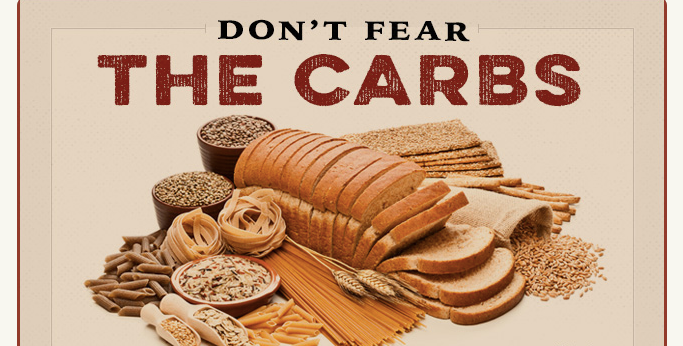This article explains the benefits of some carbs and shows that carbs are beneficial for health. They can even help you to lose weight.
How Eating Carbs Can Actually Help You Lose Weight
By Rachael Schultz Updated on August 30, 2022
It's easy to write off carbohydrates as the enemy. After all, many of us grew up hearing the praises of Atkins, and you probably know at least one person who won't shut up about how going keto gave them the body of their dreams. What do both diets have in common? Cutting carbs.
But don't fall for it — forgoing carbs is not the golden path to weight loss, and certainly not the answer to feeling less bleh after indulging in some of your favorite foods. In fact, you're less likely to gain weight — and even develop some serious diseases — if you eat more carbs, says nutritionist Lisa Young, Ph.D., R.D.N., adjunct professor of nutrition at New York University and author of Finally Full, Finally Slim. Here, experts explain what you really need to know about incorporating carbs into a healthy diet.
Not All Carbs Are Created Equal
First thing's first: Even though most of us automatically associate carbs with grains, they are just one type of carbohydrate — as are fruits, vegetables, sugars, alcohol, and even some dairy. (A carbohydrate actually just refers to a type of organic compound found in foods that contains two parts hydrogen to one part oxygen.)
You can divide carbs up a few ways, such as sugars, fiber, and starch; but in terms of healthy and unhealthy, there are two categories: whole and refined.
"Whole" refers to anything that still has its original chemical composition. With, say, a kernel of wheat, it has an endosperm, bran, and germ, the latter two being where all the fiber, vitamins, and minerals are stored. For refined carbs, though, manufacturers strip out the healthy germ and bran and just leave the endosperm center.
Science lesson aside, this distinction is crucial. "Processed carbs are rightly vilified. They're missing the fiber, which helps you feel full, along with the micronutrients and antioxidants that help protect against diseases," Young explains. They're also crucially helpful for digestion.







/112219_carbs_lead-2000-1dc94a7ae35d48fcad01527409988ccc.jpg)



